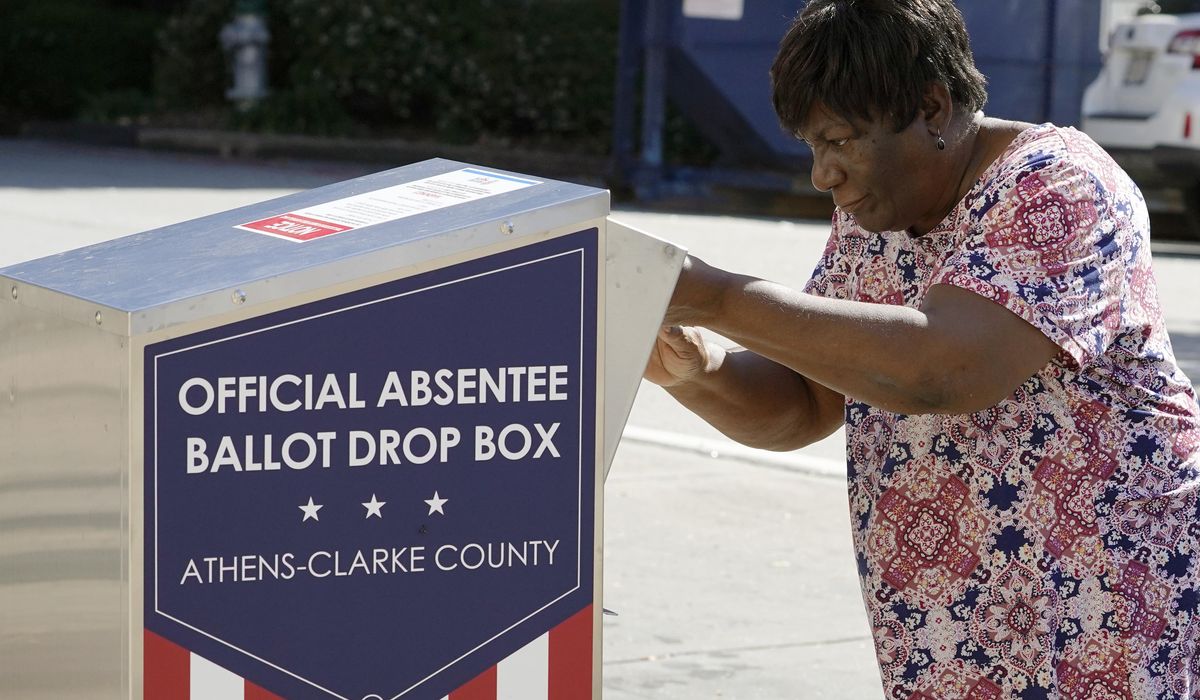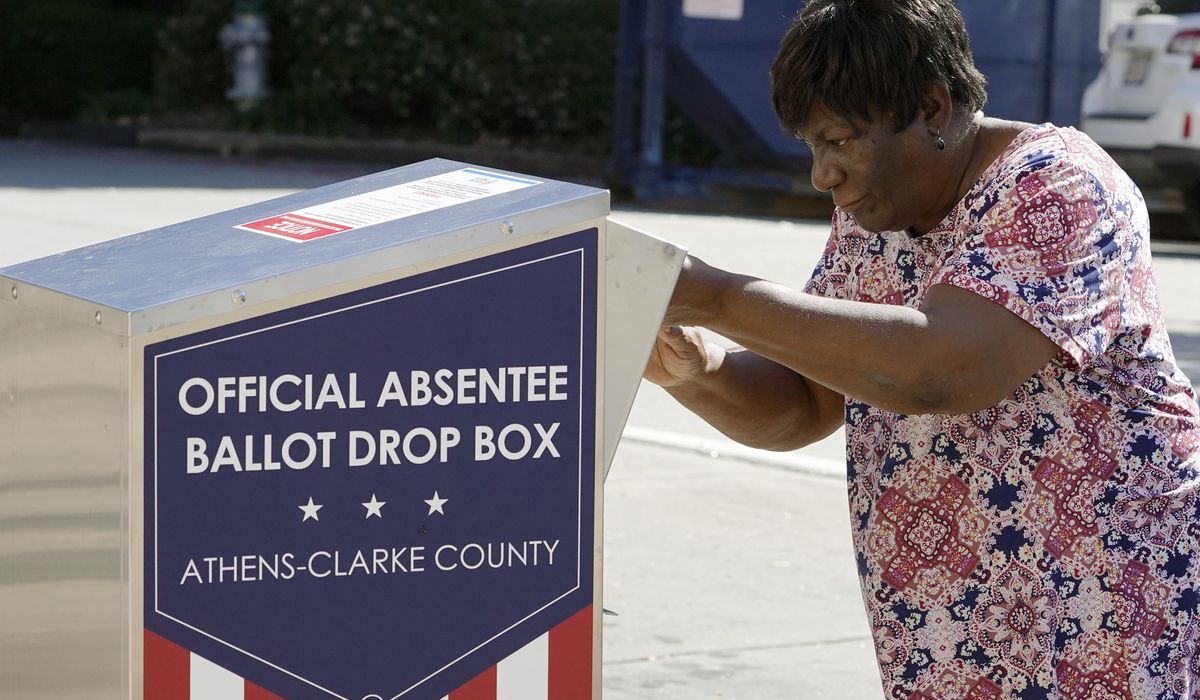
The left had grand hopes at the beginning of the year that Democrats would make advances on a racial justice agenda.
With Democrats in control of the Congress and the White House — and owing their success in 2020 to high turnout by minority voters — long-dreamed aspirations to fundamentally changing policing and paying reparations for slavery to Black Americans appeared within reach.
What followed was eight months of disappointment. The most tangible victory was the creation of a federal holiday, Juneteenth.
“Congress is doing terrible on racial justice,” said Ría Thompson-Washington, senior manager for voting rights and democracy at the liberal Center for Popular Democracy. The group, which focuses on increasing turnout by Black voters, registered 500,000 voters before last year’s elections.
“They would rather make a symbolic holiday of Juneteenth when we were already celebrating it,” she said in an interview. “Thank you, but we didn’t need that. What we needed you to do was pass the voting rights legislation.”
Congressional Democrats are painfully aware of the dissatisfaction coursing through this crucial constituency.
“We haven’t done enough,” said Rep. Alma Adams of North Carolina, a member of the Congressional Black Caucus.
Ms. Adams and other Democratic lawmakers point to President Biden’s $3.5 trillion social welfare bill. Part of the funding is intended to address racial inequities such as making community colleges tuition-free and providing homebuying aid to benefit minorities.
It is a far cry from the dramatic changes many Black voters expected. It also builds on a longtime narrative in Black communities that Democratic politicians care about them only in election years.
“There is a sense among Black and brown voters that the Democrats try to win their vote every two years and never fully deliver,” said Nick Rathod, a deputy director of intergovernmental affairs in the Obama White House.
He said Mr. Biden and congressional Democrats “need to go into the midterms having achieved some big legislative win. They can’t go to the base and say we had control and we didn’t do anything.”
Ms. Thompson-Washington held a press conference last month where civil rights groups pressed Mr. Biden to strong-arm Senate Democrats into eliminating the filibuster to pave the way for a partisan bill to overhaul the nation’s election laws. Democrats tout the overhaul as vital to overriding new laws in Republican-controlled states that they say make it harder for minorities to vote. But the bill remains stalled in the Senate.
Ms. Thompson-Washington was fuming that day over the Senate’s approval of a resolution that recognized hip-hop.
“Thank you, but we don’t need that. Like we don’t appreciate hip-hop anyway without you. That’s not racial justice,” she said, lamenting Democrats‘ failure to pass voting rights or the promised overhaul of policing policy.
Katonya Hart, a board member with Call to Action for Racial Equality, an activist group in West Virginia, also voiced deep disappointment.
“It seems like a joke. We’re being thrown a biscuit when we need a real meal. It’s not even icing on the cake when there are so much people need,” she said.
The scope of the $3.5 trillion expansion of the social safety net is also in doubt. Enough moderate Democrats are balking at the massive price tag to potentially force the leadership to trim it.
The NAACP and 25 other liberal groups have leaned on House Speaker Nancy Pelosi, California Democrat, and Senate Majority Leader Charles E. Schumer, New York Democrat, to fight the moderates on reductions to the bill. One suggestion is scaling back proposed tax increases to pay for the benefits.
“We implore you in the name of racial equity and justice: stand up to the demands of the wealthy and big corporations to preserve their privileges and escape paying their fair share of taxes,” they wrote.
That Black voters feel that Democrats do not appreciate their vote is nothing new. But for advocates such as Ms. Thompson-Washington, it is reaching a breaking point.
Black voter turnout will be pivotal in next year’s midterm elections, when Democrats risk losing control of the House and Senate, according to an analysis last week in Sabato’s Crystal Ball, a political journal published by the University of Virginia Center for Politics.
Voters in midterm elections tend to be Whiter and more educated than in presidential elections, a turnout that tends to favor Republicans. But in 2018, a surge of Black voters helped Democrats gain 41 seats and win control of the House.
“At one time, this sort of change from the presidential to the midterm electorate might have made midterm electorates worse for Democrats. But given changes in the electorate, this midterm turnout pattern may actually aid Democrats, or at least not hurt them as much as it once did,” the analysts said.
Ms. Hart said Congress‘ inaction will not necessarily hold down the Black vote because local elections will drive Black voters to the polls.
But the lack of a payoff does exacerbate the problems that community organizers face in getting Black voters to the polls, she said.
“It does mean adjusting the customer’s expectations,” she said. “Not only is there the apathy and the sense that it doesn’t matter if I vote. But you have to remember that until 1965 [and the passage of the Voting Rights Act], people were scared that they would have dogs or hoses turned on them if they tried to vote. And that fear has been passed down.”
The Rev. Al Sharpton, a civil rights activist and MSNBC host, disagreed that Democrats will be hurt by disappointment among Black voters. He said the voters recognize that Republican senators have blocked measures on policing and elections.
“The progress is being impeded by those that will not come along with those that have made that stand,” he said.
Marcus Bass, executive director of Advance North Carolina, a nonprofit that says its mission is to “build political and economic power in Black communities and institutions,” has another view.
“Black and brown voters are consistently asked to tender their vote, but the exchange rate diminishes each year,” he said. “As communities of color become more engaged in the political process as a whole, it becomes more apparent that the transaction of voting does not equate to real transformation. Democrats have neglected to accept the responsibility of helping the communities that they depend on for their political survival and continually overlook and underwhelm the only consistent group of voters they can and must depend on,” he said.







